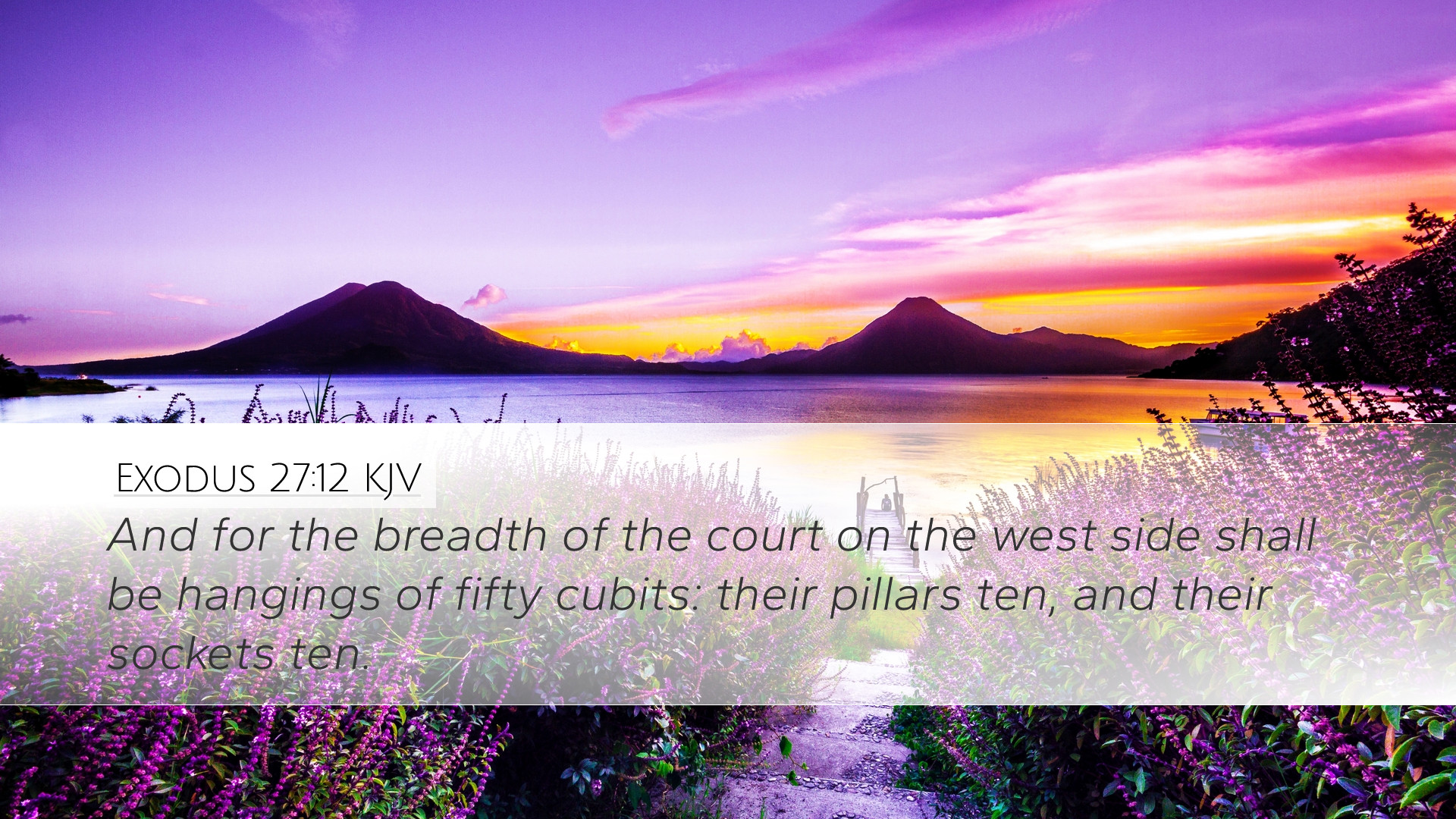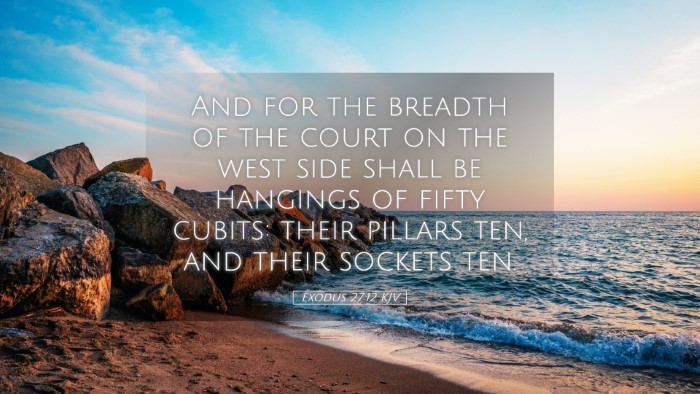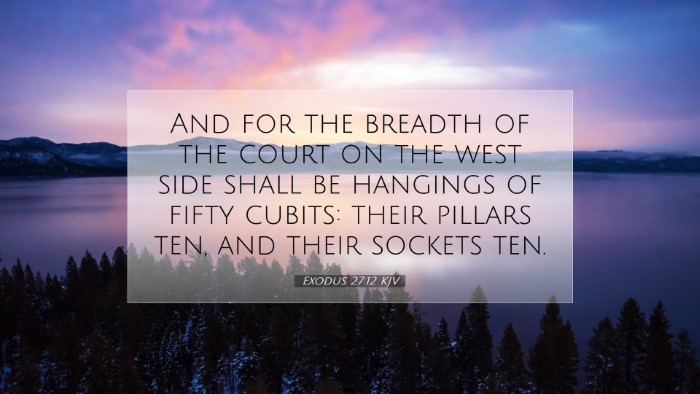Commentary on Exodus 27:12
Exodus 27:12 states: “And for the breadth of the court on the west side shall be hangings of fifty cubits: their pillars ten, and their sockets ten.” This verse is part of the instructions given to Moses regarding the construction of the Tabernacle, particularly the outer court. The details given here are significant in understanding the overall structure and order that God desired for His dwelling among His people.
Overview of the Context
The book of Exodus is pivotal in the narrative of the Israelite people. It details their deliverance from Egyptian bondage, the establishment of God's covenant with them, and the instructions for the worship of Yahweh. The instructions about the Tabernacle (also referred to as the Tent of Meeting) symbolize God's presence among His people. Each detail signifies higher spiritual truths, rendering this passage vital for understanding not just the physical structure but also the nature of divine worship.
Architectural Significance
The specified measurements for the hangings and the pillars reflect a divine order. Here, Matthew Henry emphasizes the importance of precision in constructing the sanctuary. He writes that the dimensions symbolize the sanctity and distinctiveness of the space set apart for God. The breadth of the court (fifty cubits) provides a framework that is both functional and sacred, indicating that worship requires a demarcated space.
Albert Barnes refers to the materials and measurements as conveying a sense of dignity and majesty. The ten pillars highlight stability and support, suggesting that what rests upon them—namely, the divine presence—requires a strong and established foundation.
Thematic Implications
The concept of the 'court' serves as a transitional space between the outer world and the holiness of God. Adam Clarke elucidates that this verse not only serves a functional purpose but also invites individuals into a deeper spiritual experience. The structure delineates where one may enter into communion with God, establishing boundaries that highlight the separateness that holiness entails.
Spiritual Lessons for Believers
-
Separation and Holiness: The delineation of spaces in the worship system illustrates how God is to be approached with reverence. The boundaries signify a separation from the ordinary and a call to recognize the sacred.
-
Order in Worship: The exacting nature of the dimensions reflects a divine order. Just as the Israelites were commanded to adhere strictly to these specifications, modern worship must embody a structure that honors God and is reflective of His nature.
-
God’s Desire to Dwell Among Us: The construction of the Tabernacle illustrates God's longing to be present with His people. Despite the meticulous regulations, the ultimate goal is communion—a profound theme that resonates throughout Scripture.
Literary Structure
This verse forms part of a broader narrative concerning the construction of the Tabernacle. Henry’s Commentary notes that the attention to detail serves to prepare not just the physical space but the spiritual readiness of the Israelites. Each pillar and hanging is not only practical but also laden with spiritual meaning, acting as a preparation for worship.
Conclusion
Ultimately, Exodus 27:12 invites readers to contemplate the deeper dimensions of God’s presence among His people. The architecture of the Tabernacle reflects principles of holiness, order, and divine intimacy. For pastors, students, theologians, and Bible scholars, this verse serves as a springboard into the rich theological implications of worship, community, and God's desire to interact with humanity in meaningful ways.
Through each element described, the faithful are encouraged to maintain a reverent approach in their worship, recognizing that every aspect of their gathering with God carries weight and significance in the divine narrative.


